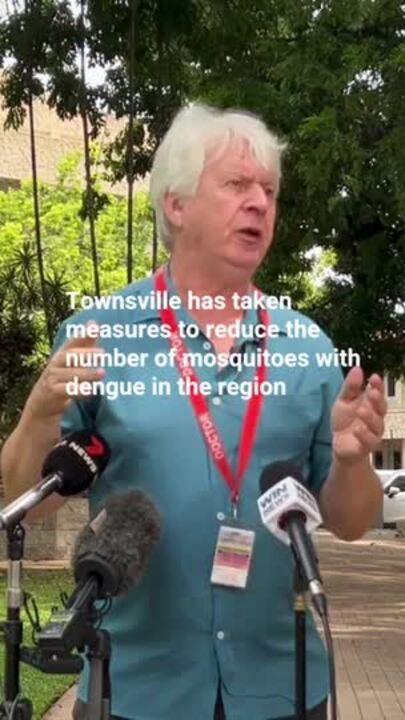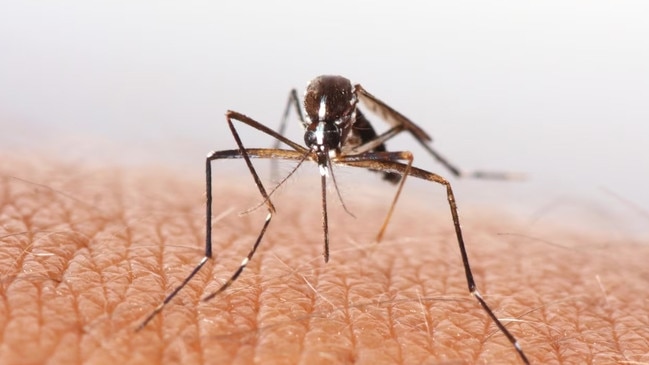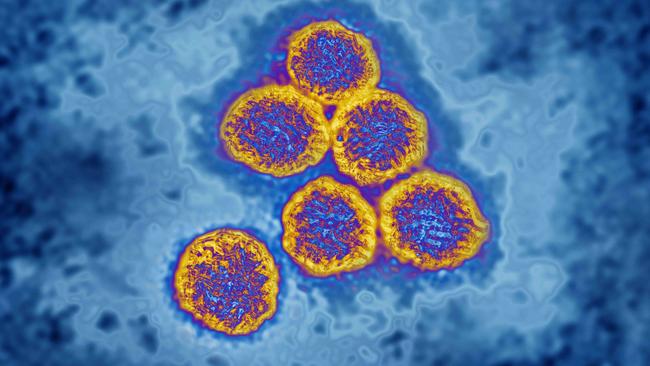Japanese encephalitis detected in NSW, sparking fresh warning
A man has been hospitalised after being bitten by a mosquito carrying a potentially deadly virus, with health authorities delivering a fresh warning.

Breaking News
Don't miss out on the headlines from Breaking News. Followed categories will be added to My News.
A man has been hospitalised with a potentially deadly virus after he was bitten by a mosquito while camping in south western NSW.
The case is considered the state’s first Japanese encephalitis case this summer, and has sparked fresh warnings for a large portion of the state.
The man is believed to have been infected in late December or early January during a holiday in the Murrumbidgee region.
“This case, along with recent detections in pigs and mosquitoes in NSW and detections in Victoria and Queensland, highlights the risk of JE virus infection in a large stretch of NSW west of the Great Dividing Range,” NSW Health’s Executive Director of Health Protection Dr Jeremy McAnulty said.
“It is very important for people who live in or travel to these areas to be aware of the elevated risk and to take precautions against mosquito bites.
“In addition to JE virus, Murray Valley encephalitis, Kunjin, Ross River, and Barmah Forest viruses can also be spread by mosquito bites.”

While symptomatic cases of the virus are rare, the fatality rate among those who are detected with the virus is as high as 30 per cent, according to the World Health Organisation.
Permanent brain conditions from the virus occur in up to half of diagnosed cases.
While most cases are asymptomatic and are therefore not detected, symptoms include fever, headaches and vomiting.
Symptoms tend to appear between five and 15 days after being bitten by an infected mosquito, and severe symptoms affecting less than 1 per cent of people include neck stiffness, disorientation, tremors, seizures, paralysis and even falling into a coma.
Severe infections can result in permanent brain damage or death, with those infected advised to contact a doctor immediately or to call triple-0 in an emergency.
NSW offers a free vaccine to protect against the virus for anyone who “lives or routinely works in various inland LGAs as well as for people who work in some other high-risk occupations”.

Residents are also urged to take precautions to avoid mosquito bites, especially in inland areas, by applying repellent regularly, especially after swimming, wearing light, loose-fitting long sleeve shirts, long pants, covered footwear and socks, and avoiding going outdoors at peak mosquito times, especially dawn and dusk.
To keep homes mosquito free, residents are urged to ensure insect screens are placed on windows and doors and are gap free, as well as removing items that may collect water such as old tyres and empty pots to help prevent breeding.
JE virus cannot be transmitted between humans, and it cannot be caught by eating pork or other pig products.
Originally published as Japanese encephalitis detected in NSW, sparking fresh warning



